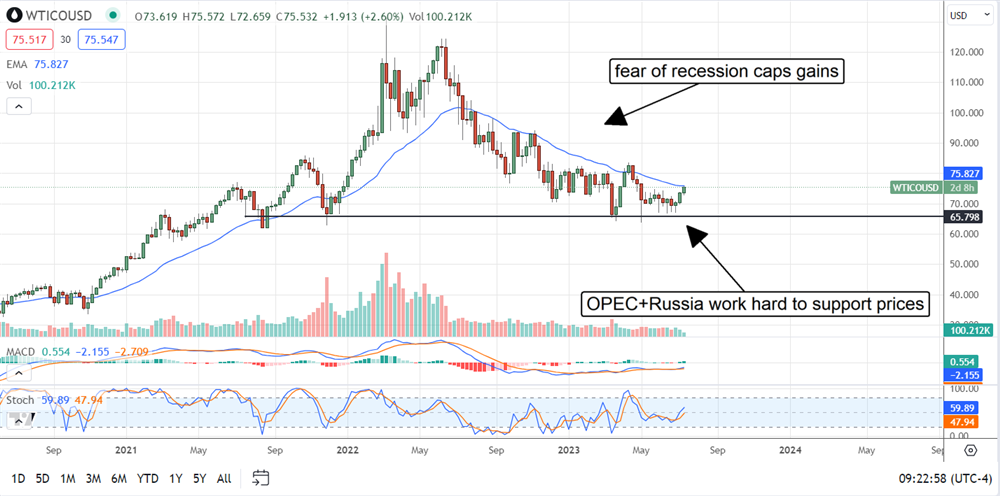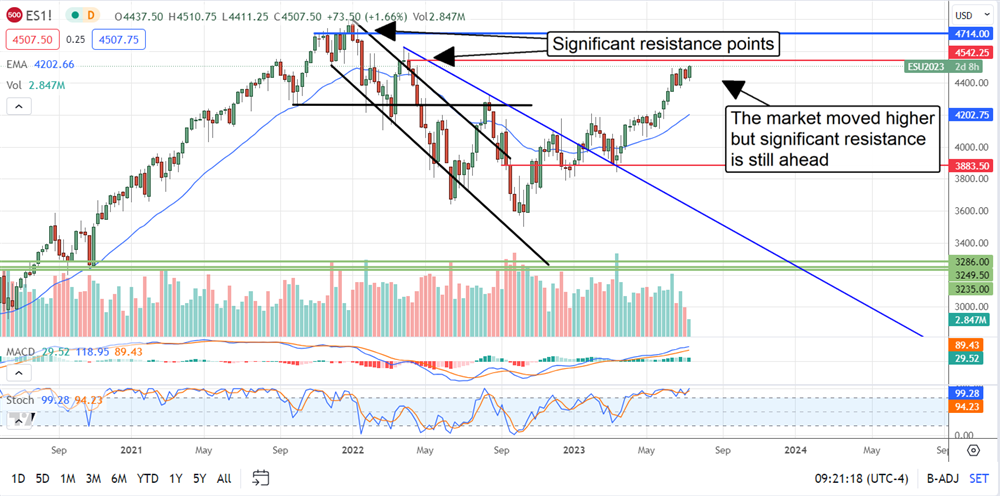Financial News
The CPI Data Isn’t As Good As You Think It Is

The equity markets increased following the June read of CPI, but investors should not be optimistic about the news. As good as cooling inflation is, inflation remains hot, and the market has many hurdles. Among them is the FOMC which is still expected to hike interest rates again this year. That has spurred an increased expectation for bank failures, consolidation among regional banks, and tightening credit conditions that will dampen demand. The takeaway is that the US economy is still on a collision course with a recession, and the Fed isn’t letting off on the gas.
CPI Cools More Than Expected In June
The Consumer Price Index was better than expected in June, but details within the report are mixed. The headline figure came in at 0.2% MoM and 3.0% YoY to beat consensus by a tenth in both comparisons. However, the figures are mixed relative to the previous month because inflation accelerated month-to-month but less than expected. The YOY figure is the market mover, down from the previous 4.0%, but it is still hot and worth watching.
The report highlighted housing, food prices, and energy as the most significant contributors to inflation. Housing and energy prices are not expected to fall due to supply/demand imbalances; food prices may stabilize but are supported by stable and potentially rising oil prices, so inflation may continue to run hot, albeit slower.
The core figures are better but still hot. Core inflation cooled month-to-month and year-over-year to hit 0.2% and 4.8%. The caveat is that 4.8% core inflation is hot enough to keep the Fed on track to continue hiking interest rates, given the demand outlook for energy and homes.
The critical data for the market is the CME’s FedWatch Tool. The FedWatch Tool revealed some repositioning following the CPI news but is ultimately unchanged from before the release. The odds of a single 25 basis point hike at the next meeting (July 26) held steady at 91%, while the odds for the duration of rates were also steady. The market expects the base rate to be at least 525 bps, if not higher, at the end of the year, which is still mispricing the Fed. Interest rates have cooled, but housing data, food price data, and energy data suggest the cooling may end. In that scenario, the Fed could follow throw on the indication that 2 or more additional interest rate hikes could be needed.
The Wild Card Is Oil Prices
Oil prices (NYSEARCA: USO) underpin the cost of everything, and the oil price may be set to rise. The threat of recession has the oil price down well off the high set following Russia’s invasion of Ukraine, but it is well-supported at the current levels. Two things to note is that oil price stabilized above the pre-pandemic levels, and OPEC+Russia are fighting hard to keep the supply/demand outlook in favor of rising prices. OPEC and Russia are controlling output and seeking new members. New members would increase the cartel's market share and ability to support the price action and drive inflation.

The S&P 500 (NYSEARCA: SPY) surged on the news by a slim 0.70%, not even 100 basis points. That is not a sign of deep conviction; the market is still below resistance at the current all-time high. The S&P 500 may drift up to retest the highs, but there are 2 significant hurdles to cross. The first is the Q2 earnings season which begins this week; the 2nd is the FOMC meeting. The Q2 earnings season could be a dud, and another interest rate hike won’t help the EPS growth outlook.

Stock quotes supplied by Barchart
Quotes delayed at least 20 minutes.
By accessing this page, you agree to the following
Privacy Policy and Terms and Conditions.



